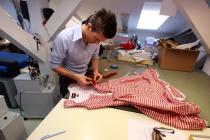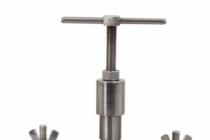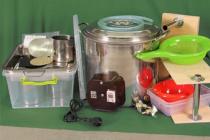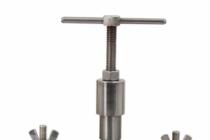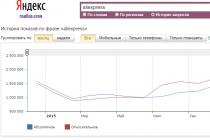I approve
[organizational and legal [position, signature, full name
Form, name of the head or other official
Organizations, enterprises] of a person authorized to approve
job description]
[day month Year]
M.P.
Job description
automoto technical condition inspector Vehicle[name of organization, enterprise, etc.]
real job description developed and approved in accordance with the provisions of the Labor Code Russian Federation, Qualification Handbook professions of workers who are set monthly salaries, approved. Decree of the USSR State Committee for Labor and the Secretariat of the All-Union Central Council of Trade Unions of February 20, 1984 N 58 / 3-102; Standard norms for the free issuance of special clothing, special footwear and other personal protective equipment to workers employed in work with harmful and (or) dangerous working conditions, as well as in work performed in special temperature conditions or associated with pollution, approved. Order of the Ministry of Health and social development of the Russian Federation of June 22, 2009 N 357n, and other regulatory legal acts regulating labor relations.
1. General Provisions
1.1. The inspector of the technical condition of motor vehicles belongs to the category of workers and directly reports to [name of the position of the immediate supervisor].
1.2. A person with special training is accepted for the position of inspector of the technical condition of motor vehicles, without presenting requirements for work experience.
1.3. The inspector of the technical condition of motor vehicles is accepted and dismissed from work by order of [name of the position of the head].
1.4. The inspector of the technical condition of motor vehicles must know:
Installation of cars, trailers, motorcycles, scooters, motonarts, snowmobiles, mechanisms mounted on the basis of tractors, and road machines;
Rules and technical requirements for the acceptance of these vehicles that have returned from the line, and after the repair of their components and assemblies;
Rules and norms on labor protection, safety measures and industrial sanitation;
Fire safety rules;
Kinds emergencies, the causes of their occurrence and methods of prevention and elimination;
Rules of the internal work schedule organizations.
2. Job responsibilities
The inspector of the technical condition of motor vehicles has the following responsibilities:
2.1. Control and inspection of the technical condition of cars, trailers, motorcycles, scooters, motonarts, snowmobiles, mechanisms mounted on the basis of tractors, and road vehicles returning from the line to parking places, as well as after Maintenance and repair.
2.2. Registration of the established technical and regulatory documentation for damage and applications for repair or troubleshooting with their appropriate registration.
2.3. Control, acceptance of components and assemblies of cars, trailers, motorcycles, scooters, motonarts, snowmobiles, mechanisms mounted on the basis of tractors, and road machines after repair and final assembly with the performance of all the work provided for by the technical requirements.
3. Rights
3.1. The controller of the technical condition of motor vehicles has the right:
For all statutory social guarantees;
Require the management of the enterprise to assist in the performance of its professional duties and exercise of rights;
Require the creation of conditions for the performance of professional duties, including the provision of necessary equipment, inventory, workplace that meets sanitary and hygienic rules and regulations, etc .;
For the free issue of special clothing, special footwear and other personal protective equipment;
To pay additional expenses for medical, social and professional rehabilitation in cases of damage to health due to an accident at work and getting an occupational disease;
Get acquainted with the draft decisions of the management of the enterprise related to its activities;
Submit proposals for the management of the enterprise to improve the organization and improve the methods of work performed by it;
Request personally or on behalf of the immediate supervisor documents, materials, tools, etc., necessary for the performance of their duties;
Improve your professional qualifications;
Other rights provided by labor legislation.
4. Responsibility
CONTROL OVER THE TECHNICAL
CONDITION OF VEHICLES
Toolkit
Irkutsk 2006
Control for technical condition Vehicle.
IN methodological guide the procedure for passing vehicles through the checkpoint of the enterprise before leaving the line and when returning to the park is given.
The manual is intended for heads of automobile enterprises, students of special training courses for specialists road transport, students educational institutions studying the subject "Rules and safety traffic»
Prepared by:
Irkutsk, Irkutsk branch of FGO SPO "KATT", 2006.
Bibliography – 5 names.
INTRODUCTION
The intensity of traffic on the roads of our country is increasing every year. It is caused by the increase in the car park and the ever-increasing needs National economy in road transport. Currently, road transportation is carried out and will continue to be carried out in the future not only along improved highways, but also along roads that are not adapted for automobile traffic. Given the significant growth in the car park, the appearance on the roads of the country of foreign-made cars with different steering arrangements, this can lead to further complication of traffic and an increase in traffic accidents if the conditions causing them are not eliminated. These conditions are:
Low discipline of many drivers of vehicles;
Lack of professional selection of vehicle drivers;
Insufficiently high quality of driver training;
Imperfection of educational and methodological means of training drivers;
Low quality of technical maintenance and current repair of the vehicle;
Poor quality or no medical control drivers when leaving the line and when returning to the park;
Lack of proper control when vehicles are released onto the line and when they return to the park, etc.
ORGANIZATION CONTROL QUALITIES
TECHNICAL STATES TRANSPORT FUNDS
1. General part
Quality control of the technical condition of vehicles is an integral part production process any company that has cars on its balance sheet. The main task of the technical service of the enterprise is to maintain the rolling stock in a technically sound condition, excluding sudden failures and breakdowns on the routes and contributing to the confident work of vehicle drivers.
The ultimate goal of control is to prevent vehicle failures and malfunctions that could cause a traffic accident or affect the outcome of an accident. That's why great attention should be given to checking the technical condition of the rolling stock during release to the line and return to the enterprise, as well as quality control of work performed directly on the vehicle. The quality control carried out by specialists does not relieve the heads of the relevant departments of the enterprise from responsibility for poor-quality performance of work and the release of faulty rolling stock onto the line.
Timely detection and elimination of failures and malfunctions of vehicles depend on the quality of monitoring the technical condition of the rolling stock when returning from the line. Therefore, work at the control and technical point (KTP) should be organized so that all cars are inspected in a timely and high-quality manner.
The control is carried out visually, using portable devices, as well as using the available equipment for diagnosing the technical condition of vehicles and units. The use of diagnostic tools allows, with minimal time, to objectively assess the readiness of vehicles for production on the line.
In order to exclude the possibility of releasing technically faulty cars on the routes and thereby preventing accidents, returns or downtime of cars on the routes, regular technical control over their technical condition is organized. To do this, enterprises should organize (create) a checkpoint (CTP).
KTP is equipped in a closed heated and ventilated room and consists of a post with an inspection ditch (overpass or half-overpass), a room for a control mechanic and a set of control devices.
Checking cars after returning to the enterprise is the main form of daily monitoring of the technical condition of the rolling stock. The car arrives at the KTP, where it is examined by a mechanic or QCD controller(technical control department), a technical accounting sheet is drawn up, after which the car is sent to the point of maintenance, current repair or to the parking lot.
When leaving the line, the rolling stock again passes through the KTP. At the same time, the completeness, availability of fire-fighting equipment, appearance vehicles serviced and recognized as serviceable the day before. Cars that have undergone maintenance and especially current repairs are checked in more detail.
The volume and procedure for checking the technical condition of cars when entering the line and when returning to the park, including checking for road safety, is carried out in accordance with the technical checklists.
If the inspection reveals defects specified in the Rules technical operation TC or the Rules of the Road, then such cars should not be released to the line, but sent to the maintenance and repair area for troubleshooting.
Currently, the check of the technical condition of buses and minibuses on the routes, the purpose of which is to prevent accidents, is taking on actual importance. For this purpose, a mandatory technical inspection point should be equipped at the final bus stops of the busiest city routes.
2. Control and technical point
The control and technical point (CTP) is designed to check the technical condition of the rolling stock leaving the fleet and returning to the fleet, the availability and correctness of the travel documents for the driver of the vehicle, and the speedometer readings.
1.Minimum required equipment:
desk;
documentation board;
stationery;
portable box for instrumentation;
electric lantern;
gas analyzer or smoke meter;
a device for checking the steering play of the vehicle;
decelerometer;
metal ruler;
a device for checking the angles of convergence-camber of wheels;
hammer with a long handle;
a device for checking the correct installation of headlights;
tire pressure gauge;
calipers;
tachometer;
inspection ditch (hoist, overpass or half-overpass);
horizontal asphalted platform, length 100 m.
2. Basic documents of the CPT:
gearbox mechanic manual;
instruction on OT and safety measures, fire safety, electrical safety;
maintenance schedule for vehicles;
instruction (manual) for the operation of vehicles available in the enterprise;
instructions for the technical inspection of the rolling stock by the driver, mechanic, QCD mechanic, other officials;
samples of travel documentation of the driver of the vehicle;
technical condition control log during the release and return of the vehicle from the line.
3.Technology of rolling stock inspection
The procedure for inspecting rolling stock is not regulated by existing GOSTs or OSTs. Vehicles with deficiencies and malfunctions that affect road safety, which are specified in the SDA, are not allowed to operate.
1.Engine
It is difficult to start and its unstable operation at low idle speeds. Increased in comparison with the established standards, the content of CO and CH or the opacity of exhaust gases (for diesel engines).
2.Transmission
Faulty or misadjusted clutch. Difficult inclusion or spontaneous disengagement of gears.
3.Steering control , front bridge
Increased steering wheel play compared to the standards, stiff travel and steering jamming. Increased play in the steering rod joints. Violation of the normal adjustment of the wheel bearings.
4.brake system
Decrease in the established standard of efficiency of action, uneven operation or jamming. Leakage from fluid or air system. Malfunction of the locking device of the parking brake lever. Malfunction of a light signal of braking.
5.Chassis Part
Damage or loosening of springs, springs and other suspension parts. Tire size mismatch, carcass damage or bead failure, extreme or uneven tire tread wear.
6.Cabin And body
Damage to the cockpit, glazing and plumage. Malfunction of constipation of body sides, cab doors. Malfunction of the dump truck body lifting mechanism.
7.Working place driver
Malfunction of control devices, windshield wipers, washers and heaters of the front glass, as well as its damage. Malfunction of ventilation and heating, gas contamination of the driver's cab and the passenger compartment of the bus.
8.electrical equipment
Malfunction of sound and external light signals. Violation of their number and installation location.
A more detailed list of malfunctions and conditions under which the operation of vehicles is prohibited is given in the Appendix to the Rules of the Road and in Decree of the Government of the Russian Federation of 01.01.2001 No. 000.
Driver transport facilities:
On the line while driving, it monitors the technical condition of the vehicle according to instrument readings;
Sets deviations in the operation of the engine, running gear, brake system, steering;
At parking lots, by inspection, controls the air pressure in the tires, the condition of the coupling device, the leakage of air or fluid in the brake system, the operation of lighting and alarm systems;
If faults are found, they are eliminated;
If it is impossible to eliminate the malfunctions, inform the company and wait for instructions from the responsible person for road safety.
Control mechanic checkpoint:
Many years of practice in the operation of motor vehicles has established the recommended sequence for performing technical inspection of the vehicle before leaving the line and when returning to the park, which ensures that control operations are not missed, minimum cost time. The scope of the control inspection is basically typical for various vehicles and guarantees access to the rolling stock line, which meets the requirements of the technical operation of the vehicle.
The start and direction of inspection is the left side of the cab, the left front wheel and further around the car.
Control Operation Requirements
1. Availability and correctness of registration Driver's license
travel documentation, waybill, etc.
documentation
2. The condition of the driver's cabin mat without cuts, etc.
3.Check steering wheel play Should not exceed
established norms
4. Handbrake lever travel Full braking
should take place at
moving the lock
snaps 2-6 teeth
5. Availability first aid kit, signs
emergency stop, means of fire-
solutions, wheel chocks, wide
some lining under the heel of the jack, start-
howl of the crank
6. Condition and fastening of the front Not allowed: through-
left wheel, steering rods, bipod steering damage in the tire,
the first mechanism breaks the cord threads,
Table 1 continued
___________________________________________________________
tread wear, noticeable
backlashes in the articulation
steering rods
7.Checking the serviceability and fastening of the Ladders of the springs must
front suspension, oil leakage must be securely tightened
from the engine crankcase, front axle, guides, oil leakage and
cool liquid
8. Cleanliness and serviceability of headlights, subheadlights - Must be clean
nicknames, license plate
9. Oil level in the engine crankcase, cooling - Using a dipstick, tension
supply fluid, tension belt drive - by pressing
hand straps on the belt
10. Control of the state and fastening of the right - The same as the left wheel
left front wheel and fender
11. State and fastening of doors, stock Doors must be used
wheel, operation of door locks and equal lock, glass
power windows, the presence and condition - emniki and hinges are easy to open
rear-view mirrors, the presence of fuel - tear and close.
va in the fuel tank The spare wheel must
be securely fastened.
Mirrors - whole and clean
12. Condition and fastening of the right rear - Same as for others
them wheels wheels
13. The condition of the side locking hooks The locking hooks must
rear lights, direction indicators, in the closed position
the presence and fastening of a license plate
14. Condition and fastening of the rear under - Nuts of the stepladders of the springs,
weights clamps and fingers reactive
rods should be
securely tightened
15. Condition and fastening of the left butt - Same as for others
them wheels wheels
16.Muffler condition Not allowed
cracks and holes
17. Condition and fastening of the left door - The door must be used
cockpit, rear-view mirrors, work - equal lock, glass
Table 1 continued
lock and window regulator
to be closed and securely
18. Checking the free play of the clutch - Free play of the pedals op-
leniya and brakes are determined by pressing the switch
hand far away until
will not be perceptible
tivlenie, at the same time
ny measurement of the value of pe-
pedal movements
19. Checking the internal combustion engine at different frequencies
those rotations, health check
measuring instruments
20. Checking harmful substances in reflection - Should not exceed the norm
used gases of mating values
21. The pressure in the tires of the wheels Should not exceed the normal
mative values
22. On the move of the car - lightness ne - When braking, all wheels
gear shifting, steering operation should be smooth and simultaneous
vogo control and action of the brakes
After completing the procedure for checking the technical condition of the vehicle, the control mechanic puts his signature on the waybill, if the car is in a technically sound condition, and sends the car to the line. If any malfunction is detected, the car is sent to the maintenance and repair area to eliminate it, which is recorded in the technical condition control log and the Vehicle Maintenance and Repair Record Sheet is filled out.
The control mechanic is fully responsible for the release into operation of vehicles in accordance with Art. 266 of the Criminal Code of the Russian Federation “Poor-quality repair of vehicles and their release into operation with technical malfunctions”, which provides for rather severe measures, especially if this caused serious or moderate harm to the health of the victims in the event of an accident or material damage was caused.
Annex 1
JOB DESCRIPTION
CONTROL MECHANICS (MECHANICS
DEPARTMENT OF TECHNICAL CONTROL)
(typical)
1. General Provisions
The QCD mechanic monitors the technical condition of the rolling stock when it leaves the line and returns from it, as well as after maintenance and repair; appointed to work and dismissed from it by order of the director of the enterprise.
2. Duties
The mechanic must:
To exercise control over the technical condition of the rolling stock when it leaves the line and returns from it, allowing the release of only technically sound rolling stock in accordance with the release schedule and the requirements set forth in the Rules of the Road Traffic Safety Rules and the traffic police, others normative documents;
Check the amount of fuel in the tanks of cars, mark the actual time of departure and return of the rolling stock in the waybill, and upon release, also certify its serviceability with your signature;
Keep records of the location of the rolling stock within the enterprise;
To bring to the attention of the management all cases of non-release of cars on the line due to poor quality maintenance or TR work;
Keep a log of the release of cars on the line and return from the line.
The mechanic has the right to suspend the release to the line of rolling stock, the technical condition and appearance of which does not meet the requirements of regulatory documents.
4. Responsibility
The mechanic bears administrative and criminal liability for the release of the rolling stock on the line in a technically faulty condition, if they entailed the commission of a traffic accident.
Bibliography
1. and others. Traffic safety. M., Transport. 1988.
2.Penezhko traffic in road transport. M., Transport, 1976.
3. etc. Maintenance of automobiles. M., Transport, 1982.
4. et al. Traffic safety in road transport. M., Transport, 1988.
5. Rules of the road. M., Slavic book, 2006.
Good afternoon. I have a question - I passed pre-trip inspection, stamped on the waybill. A wheel fell off on the way, who is responsible for this?
Novel, Hello.
What problem do you want to solve in this case?
Hello, I work in a big transport company and after leaving, after 50 km, the wheels fell off and now they make me pay for it all.
Novel, in general, the situation is clear.
As far as I understand, you think that the wheels fell off due to the controller's fault. I'm not sure that it will be possible to somehow prove it, although you can try. The controller had to check the health of the wheels and tires during the pre-trip inspection.
If, as a result, the wheels fell off due to a malfunction that the controller could and should have identified (for example, an old crack in the fastening elements), then you can try to recover damages from him.
If the wheels fell off as a result of the current damage (the car ran over a bump and the elements broke), then the controller is not to blame for the situation.
Good luck on the roads!
The wheels unscrewed and flew away.
we have two mechanics at the enterprise, one inspects the transport and signs for it, and the second puts a signature on the release on the line, if the first signed a ticket for a faulty car, will the second be responsible for this?
Anton Please describe the situation in more detail.
What exactly does each of the mechanics do with the car?
Where exactly does each of the mechanics mark?
Alexander-724
Good afternoon
I have a question about the plan. Which OKVED should be opened for an individual entrepreneur who provides services for monitoring the technical condition of vehicles.
Alexander, Hello.
I don't know the exact answer to your question.
Looked through the OKVED reference book. In my opinion, the most suitable option:
52.21.29 Other auxiliary activities related to road transport
Good luck on the roads!
Hello. Who can be responsible for BDD at the enterprise. ? And whether higher education is required or enough secondary and attestation.
Hello, can you tell me if a citizen of the Republic of Belarus can take retraining courses for a vehicle technical condition inspector in the Russian Federation? And also to control the technical condition of vehicles on the territory of Russia with a private state carrier
Vadim, Hello.
Good luck on the roads!
thanks for the info
Good afternoon We have an organization in the presence of 30 units, we are interested in such a question, 10 units. (KAMAZ trucks carry clay on the territory of the plant) do they need to go through pre-trip control? and there are 8 more. forklifts (loading cars) do they need to pass? There is also a tractor, grader, front loaders do they need to? And from January 1, 2019, a signature in the driver's log is not needed?
Hello.
Good luck on the roads!
Victor-124
2. Regarding loaders. In this case, it is not clear whether they transport goods in terms of legislation or not. This is what makes it necessary to pass control. I recommend that you ask this question in the traffic police.
The requirements for technical control are provided for by part 2 of article 20 of the Law on traffic safety, and it is in latest edition(taking into account 386-FZ) applies to:
1. transportation on a contractual basis
2. transportation for own needs buses And cargo cars.
That is, if tractors, loaders, truck cranes, etc. (which is not registered as a Bus or Freight car) are not subject to the requirements of part 2. As well as cars.
Victor-124
The regulatory documents do not say anything about the citizenship of the controller, it can be anything. The main thing is that a person has the necessary level of education.
Small clarification.
The level of education is determined by the diploma. For the Controller it is:
1. high school diploma vocational education in the specialty 23.02.03 "Maintenance and repair of motor vehicles" or a diploma of education not lower than secondary vocational in the specialties included in the enlarged group 23.00.00 "Equipment and technology of land transport" - The presence of these diplomas makes it possible not to undergo retraining.
2. the presence of a diploma of education not lower than secondary vocational in specialties that are not included in the enlarged group 23.00.00 (at least a cook, at least a philologist) - retraining is needed.
In practice, foreign diplomas, including those of the CIS countries, even if it says "Maintenance and car repair" are accepted as a document confirming the presence other education, that is, retraining is needed.
The whole point is that the traffic police have supervision of 196-FZ. Tractors and loaders (with the exception of loader cars) are registered with Gostekhnadzor. Orders of the Ministry of Transport follow from the 196th, which do not apply to the Gostekhnadzor department. In tractor technology, there is no such thing as mandatory vouchers and pre-trip control of the vehicle. Last year I made a request to technical supervision. In response, they indicated that their department, according to the situation, is engaged in supervision in their positions, and there are no specified concepts and punishments in their regulations.
Victor, that's right.
A foreign citizen has the opportunity to get an education in Russia in the specialty 23.02.03, and in this case he can work as a controller.
Perhaps it is possible to somehow confirm a foreign diploma on the territory of Russia, but I have not studied the legislation in this area in detail.
Good luck on the roads!
Good afternoon
I - Individual entrepreneur, taxi, private car, without employees. By professional and qualification requirements I correspond to the position of "Controller of technical condition of vehicles. Do I have the right to independently conduct a pre-trip control of my car and put a note about it in the waybill?
AlZ, If the education complies with Order 287 and the documents on training are not expired - no problem, and in compliance with all the requirements of Order 20 and RD-200 for the equipment of the inspection site.
Hello, having a higher education in the specialty "Automobiles and the automotive industry" with the qualification of an engineer, do I have the right to conduct a pre-trip inspection of the vehicle and put marks in the PL?
Alex, Hello.
Unfortunately, I could not find the specified specialty in all-Russian classifier specialties. Therefore, it is impossible to say whether it belongs to the 23.00.00 group.
I can assume that over time the names of specialties have been updated. However, I do not know how to find a correspondence between the "old" and "new" specialties.
Good luck on the roads!
Alex-33, In any case (wang) that more than five years have passed since graduation. Then study again.
Timofey-6
Good afternoon
Tell me, please, that in addition to a diploma of education, it is necessary to have an individual entrepreneur to conduct a pre-trip inspection of a car? Is a license required for this activity? Is there a need for an equipped room or the availability of any equipment? Is it necessary to register a diploma (certificate) of retraining or advanced training in any supervisory authority?
The controller of the technical condition of vehicles is constantly in contact with drivers, representatives of the forwarding department and other employees of the company. In this regard, the employee is required to have well-coordinated speech, communication skills, and a polite attitude towards people. Among the important personal qualities of a professional, it is worth highlighting a developed memory, the presence of logical thinking, he must be attentive and prompt. Employers appreciate purposeful initiative employees with good stress tolerance. This profession is one of the most demanded in modern times, because the number of vehicles is increasing every year, and, accordingly, the demand for their maintenance is growing. Having received all the necessary knowledge and skills, the employee will be able to clearly and reliably perform his duties, while there is always a chance career development and advancement and professional development. It is worth noting that the salary of such employees is rather big, but depends primarily on the size of the organization in which he is employed.
Certification of the inspector of the technical condition of vehicles
Before mastering this profession, the applicant must receive a secondary education. If he has not graduated from any specialized institution, then you can take training courses, but it is important to consider that for this you need to get a higher education in a related field, for example, get a diploma in engineering or automotive engineering. In addition, employees who have received a specialized higher education are allowed to work, and when undergoing retraining, no preliminary experience is required. And also there is an opportunity to get a job after receiving the specialties of enlarged groups (23.00.00). But in this case, the retraining of the inspector of the technical condition of vehicles is carried out only after he has worked in the profession for at least a year.
General provisions
The employee assigned to this position is a worker. Basically, employers require an incomplete higher education profession and at least one year of work experience. Or they can hire an employee with a complete higher vocational education.  In this case, experience is not required in all organizations. The director of the company can dismiss or hire an employee by issuing an appropriate order. The instruction of the inspector of the technical condition of vehicles must indicate to whom this employee reports and who is directly subordinate to him.
In this case, experience is not required in all organizations. The director of the company can dismiss or hire an employee by issuing an appropriate order. The instruction of the inspector of the technical condition of vehicles must indicate to whom this employee reports and who is directly subordinate to him.
Knowledge
When applying for a job, an employee must be well versed in vehicles, know their structure, design features, as well as the requirements for serviceable units. His knowledge should include the methods and activities necessary to control and check the health of the transport, as well as all types of breakdowns that he must identify in the course of his work.  He must understand the principle by which computer diagnostics of machines is carried out and use it in practice, knowing all the rules for handling equipment. In addition, he is obliged to know how the reclamation documentation is drawn up, fixing the level of quality of maintenance, as well as the repair of individual parts of vehicles. He must be familiar with all the rules, regulations, procedures and charter of the organization.
He must understand the principle by which computer diagnostics of machines is carried out and use it in practice, knowing all the rules for handling equipment. In addition, he is obliged to know how the reclamation documentation is drawn up, fixing the level of quality of maintenance, as well as the repair of individual parts of vehicles. He must be familiar with all the rules, regulations, procedures and charter of the organization.
Responsibilities and characteristics of work
The duties of the inspector of the technical condition of motor vehicles include monitoring the technical condition of motor vehicles before and after departure. If special equipment is available, then he is obliged to conduct computer diagnostics. He must prohibit departure if he detects malfunctions or a violation of the integrity of the transport. Also, this employee is engaged in checking the quality of repair work with the car itself or its individual components by other employees of the company.
Functions
In addition, the professional standard of the inspector of the technical condition of vehicles includes such functions as the preparation of documents relating to applications for repair work, the elimination of breakdowns in vehicles and the registration of cars. In his activities, this employee is obliged to take into account all the standards, requirements, acts, provisions on labor protection, industrial safety and other rules established by the company.
Rights
The specialist who has received this position has the right to carry out actions that do not go beyond his competence, aimed at preventing and eliminating any inconsistencies or violations. He also has the right to all social guarantees that are provided for by the current legislation, as well as to demand from the authorities assistance in the performance of his duties, if necessary.  In addition, the inspector of the technical condition of vehicles has the right to require the company to create good organizational and technical conditions, as well as provide the inventory and equipment necessary for the performance of work. The employee has the right to view all documents that relate to his work duties, as well as make requests for information, materials and documentation necessary for the implementation labor activity. He has the right to improve his skills and to report to the authorities about any identified violations or inconsistencies in the work of the organization, offering his own ways to solve the problems that have arisen.
In addition, the inspector of the technical condition of vehicles has the right to require the company to create good organizational and technical conditions, as well as provide the inventory and equipment necessary for the performance of work. The employee has the right to view all documents that relate to his work duties, as well as make requests for information, materials and documentation necessary for the implementation labor activity. He has the right to improve his skills and to report to the authorities about any identified violations or inconsistencies in the work of the organization, offering his own ways to solve the problems that have arisen.
Responsibility
The inspector of the technical condition of vehicles can be held liable for untimely or poor-quality performance of the duties assigned to him by the company's management and instructions. He is responsible for violation of any rules, norms and techniques provided by the enterprise, as well as for the disclosure of trade secrets or any other confidential information regarding the activities of the company.  This employee may be held liable for violation of administrative, criminal and labor code in the course of their work. He can also be involved for exceeding his official powers or using them for his own personal purposes. In addition, he is responsible for causing the firm material damage. All penalties must comply with the current legislation of the country.
This employee may be held liable for violation of administrative, criminal and labor code in the course of their work. He can also be involved for exceeding his official powers or using them for his own personal purposes. In addition, he is responsible for causing the firm material damage. All penalties must comply with the current legislation of the country.
Conclusion
Quite attractive and highly paid is the position of the controller of the technical condition of vehicles. The demand for such maintenance of machines in our time is quite large, so having received this profession, a specialist is unlikely to be able to quickly find himself suitable job. But there are also disadvantages, this is a very hard work that requires increased responsibility, attentiveness and other nuances.  The employee must constantly communicate with customers and other employees of the company. Of course, duties and other points of instructions may vary depending on the scale and direction of the work of the organization where he is employed. But all changes cannot go beyond the current legislation. Before assuming duties, the employee must familiarize himself with all guidance documents and coordinate their powers in the company with superiors.
The employee must constantly communicate with customers and other employees of the company. Of course, duties and other points of instructions may vary depending on the scale and direction of the work of the organization where he is employed. But all changes cannot go beyond the current legislation. Before assuming duties, the employee must familiarize himself with all guidance documents and coordinate their powers in the company with superiors.
Issued document:
Do you want to work as a vehicle inspector? Get retrained at MASPK!
In autumn 2015, the Ministry of Transport published Order No. 287. This document establishes new - and very strict - requirements for the qualifications of specialists working with vehicles. People who do not meet these requirements can no longer hold their positions and will be forced to look for other work.

- The inspector of the technical condition of vehicles must know:
- Regulations on road safety in motor transport, its maintenance and repair;
- Technical requirements for vehicles (both after returning from the line and after repairs);
- Design features, device, specifications, operating rules and purpose various kinds vehicles and trailers;
- Labor and transport legislation;
- Rules of fire protection and labor protection.
Without this knowledge, there is no work permit. However, having knowledge alone will not be enough: you need a document that confirms your qualifications. It’s good if you have a profile diploma (specialty “Maintenance and repair of motor vehicles”), but what if you don’t have it?
Getting another education is long and unprofitable, but there is an easier option:
Pass professional retraining in MASPC and get a diploma that meets all state requirements!
We bring to your attention a retraining program corresponding to the state professional standard. In just 252 hours (502 for the advanced course) you will gain all the knowledge and skills you need to work as a vehicle technical condition inspector.
We provide only relevant information that you can immediately put into practice. No "water", no outdated or useless knowledge - only what you really need in your work.
Training can be done remotely, without interruption from work! After completing the retraining course, you will receive a diploma of the established form.
Professional retraining in MASPK
The controller of the technical condition of vehicles is one of the key positions in any company engaged in the transportation of goods or passengers. He is responsible for:
- Control over schedules for scheduled repairs and maintenance of vehicles;
- Control over the technical condition of vehicles and trailers that are returning from the line to the parking lots;
- Checking the condition of vehicles and trailers after maintenance and repair;
- Drafting of regulations and technical documentation for damage, filing an application for repairs and troubleshooting;
- Compliance with the consumption norms established for operating materials;
- Delivery of vehicles from the line to the parking lot in case of an accident or an accident.

